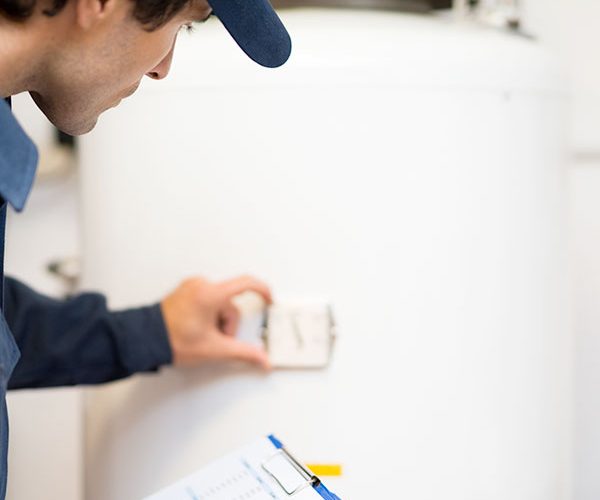Tackling the Frequently Encountered Water Heater Emergencies
Tackling the Frequently Encountered Water Heater Emergencies
Blog Article
What are your opinions about Common Hot Water Heater Problems?

A hot water heater is one of the most crucial standard appliances that can be located in a home. With water heaters, you don't need to go through the anxiety of heating water by hand every time there is a requirement to wash, do the laundry, or the recipes. However, there is constantly a possibility that your water heater would certainly break down similar to the majority of mechanical devices.
It is essential to note any kind of little breakdown as well as tackle it rapidly prior to points leave hand. A lot of times, your hot water heater starts to malfunction when there is an accumulation of sediments as a result of continual use. As a precaution, routine flushing of your water heater is advised to avoid debris buildup as well as protect against functional failure.
Usual water heater emergencies and also how to take care of them
Dripping hot water heater tank.
A leaky storage tank could be an indication of corrosion. It could cause damage to the floor, wall as well as electrical tools around it. You might also go to threat of having your home swamped. In this circumstance, you must shut off your water heater, enable it to cool off, as well as meticulously seek the resource of the issue. At times, all you require to do is to tighten up a few screws or pipe links in cases of small leakages. If this does not work and also the leakage lingers, you could need to utilize the solutions of a technician for an appropriate substitute.
Varying water temperature level.
Your hot water heater could start producing water of various temperature levels generally ice cool or hot hot. In this scenario, the first thing you do is to ensure that the temperature is set to the desired degree. If after doing this, the water temperature level keeps changing throughout showers or various other activities, you could have a damaged thermostat. There could be a requirement to replace either the thermostat or the home heating unit of your hot water heater.
Insufficient warm water
It may be that the water heater can not support the warm water demand for your apartment. You can upgrade your water heater to one with a bigger capability.
Discolored or odiferous water
When this occurs, you require to understand if the problem is from the tank or the water source. If there is no amusing scent when you run chilly water, then you are certain that it is your water heater that is faulty. The stinky water can be triggered by corrosion or the buildup of microorganisms or debris in the water heater tank.
Final thought
Some house owners overlook little caution and also minor faults in their hot water heater unit. This only results in additional damage and a possible full break down of your appliance. You must manage your hot water heater mistakes as soon as they come up to stay clear of even more costs as well as unneeded emergency difficulties.
With water heating units, you do not require to go through the tension of heating water manually every time there is a need to take a bathroom, do the laundry, or the dishes. Your water heating system might start generating water of various temperatures generally ice cool or hot hot. It might be that the water heating system can't sustain the warm water demand for your home. If there is no funny odor when you run cold water, then you are particular that it is your water heating unit that is damaged. The stinky water can be triggered by corrosion or the accumulation of germs or debris in the water heating system storage tank.
Common Water Heater Issues and What You Should Do
What Type of Water Heater Do You Have?
Before we begin it’s first important that you identify the type of water heater you have on your property. There are two main types of water heaters out there: conventional and high efficiency.
Both of these types of products typically use either gas or electricity to heat power. There are also solar water heaters that use a thermal collector on the roof or yard to heat the water.
While these models are not as common, they can cut heating costs in half. In this article, we will focus on conventional and high efficiency.
How Do My Electric and Gas Water Heater Work?
Though they look similar, electric and gas water heaters work very differently. It’s important to know their basic function because often problems can be specific to the heating source.
In the electric model, a thermostat on the side of the machine detects the temperature of the water in the tank. When the temperature needs to rise electricity flows to a heating element suspended in the water.
Gas models also use a thermostat device — typically with a mercury sensor at the tip and an additional sensor called a thermocouple. The thermocouple detects whether the pilot light is on and controls the flow of gas.
When the thermostat drops below the appropriate level gas is released which becomes ignited by the pilot light. The flame heats the bottom of the water tank which causes hot water to rise and cold water to drop.
This natural circulation continues until the water reaches the desired temperature. Then, the thermostat triggers the gas control valve to shut off the flow of gas.
What Are the Most Common Issues and How Do You Fix Them?
https://happyhiller.com/blog/common-water-heater-issues-and-what-you-should-do/

We were brought to that editorial about The Importance of Water Heater Maintenance from an associate on a different website. Are you aware of another person who is intrigued by the niche? Be sure promote it. Kudos for your time. Kindly check our blog back soon.
Professional-grade solutions. Report this page